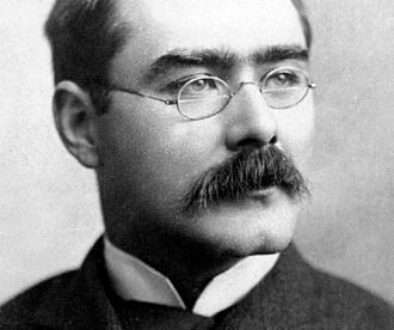Men Without Chests
Menanteau Serfontein – 20 August 2021. Updated 14 December 2021
In a previous Article, I dealt with “The Need to Adhere to Traditional Universal (Absolute) Values and Principles“. However, the importance of this matter has compelled me to once again reflect on the dire need for a return to those values and principles that have stood the test of time.
We live in a world characterized by corruption, bribery, dishonesty, lies, half-truths, deception, fake news, conspiracy theories, self-centredness, pride and a lack of respect, honour and dignity. There seems to be a “blurring” of what is “good” vs “bad” and “right” vs “wrong”. It appears that the concept of Absolute Truths is no longer fashionable. Instead, relativism is gaining ground, i.e. everything is relative: “what is true for you is not true for me”. Everything is circumstantial – “I will do what is convenient, not what is right”. Even amongst members of religious organizations, there often seems to be confusion about some of these issues. I agree with C.S. Lewis (author, lay theologian and academic at both Oxford University and Cambridge University) who said a few decades ago, that the absence of absolute truths, would lead to the decay of morality and a lack of virtue within society. Without a belief in and the teaching of absolute truths inherent in the moral laws of traditional humanity, we fail to educate the heart and are left with intelligent men who behave like animals upon impulse without restraint and filters, or as Lewis puts it, “Men without Chests.”
“In a sort of ghastly simplicity we remove the organ and demand the function. We make Men without Chests and expect of them virtue and enterprise. We laugh at honour and are shocked to find traitors in our midst. We castrate and bid the geldings be fruitful.” – C.S. Lewis, Author of the Book “The Abolition of Man”.
“I am very doubtful whether history shows us one example of a man who, having stepped outside traditional morality and attained power, has used that power benevolently.” ― C.S. Lewis
The reason for the continued questioning and watering down of Absolute Truths, Values and Principles could be the consequence of ignorance, or the success of influencers who promote the removal of the concept of absolute truths, or rebelliousness against the concept of self-control, or a desire for freedom from anything that imposes boundaries upon an individual’s speech and/or conduct. It could also be as a result of parents, educational institutions and even religious organizations not actively teaching children and adults about absolute truths – what it is, why it is important and how to apply it.
In Proverbs 2:9, the wise King Solomon said “Then you will understand what is right and just and fair – every good path.”
Whatever the causes might be, I strongly believe that it is not necessary for us to accept the status quo. I believe that individuals and entities at all levels throughout society should be doing substantially more to inculcate sound values and principles. This will help to ensure that people do not end up with world-class knowledge and skills about subject matter, but lacking the knowledge and skills to successfully manage their personal lives. No wonder that so many brilliant academics, business people, sports stars, etc who excel in their area of expertise, are stunted in their personal and spiritual lives, resulting in them often struggling with making the right ethical choices and applying appropriate wisdom in some areas of their lives such as relationships, mental health, integrity, honesty, money matters, addictions, honouring commitments, taking personal responsibility, emotional intelligence (EQ), etc.
“A fool spurns a parent’s discipline, but whoever heeds correction shows prudence.” – Proverbs 15:5
In his Book “The Abolition of Man”, C.S. Lewis points out that similar traditional (universal) values (contained in what C.S. Lewis refers to as the “Tao”), have applied in various civilizations over the ages. Lewis rightly maintains that there are certain principles, standards of morality, values and a clear distinction between what is “good and bad” and “right and wrong”, that are universally found across most religions, faith movements and societies.
 Examples of Traditional Absolute Values and Principles which have been dealt with in a variety of previous Articles on this Website, include the following – (Click on the name to read the Article concerned):
Examples of Traditional Absolute Values and Principles which have been dealt with in a variety of previous Articles on this Website, include the following – (Click on the name to read the Article concerned):
Character – What It Is and Why and How to Cultivate it
Duty, Trustworthiness, Reliability, Dependability and Faithfulness
Self-Control and Self-Restraint
Sacrifice Today for Something Better Tomorrow – Delayed Gratification
Courage, Willpower, Perseverance and Follow-Through
Restlessness – What is it about, Why are We Restless and What is the Solution
Taking Personal Responsibility
If we don’t teach our children and if society does not generally practice and expect adherence to the basic universal/timeless values of traditional humanity, then the void would be filled by those whose intentions are less noble and who have the ability/power to, over time, make others into what they please. C.S. Lewis says “For the power of Man to make himself what he pleases means… the power of some men to make other men what THEY please.”
Aristotle says that “the aim of education is to make the pupil like and dislike what he ought.”
“…… The task of the modern educator is not to cut down jungles but to irrigate deserts. The right defense against false sentiments is to inculcate just sentiments. By starving the sensibility of our pupils, we only make them easier prey to the propagandist when he comes ……” ― C.S. Lewis
Lewis warns against the educators, philosophers and other influencers who lead unsuspecting naive young minds astray by propagating thoughts, values and principles that contradict the time-tested universal truths of traditional humanity. 
In his book “The Seven Habits of Highly Effective People”, Stephen R. Covey refers to the fundamental idea that there are principles that govern human effectiveness – natural laws in the human dimension that are just as real, just as unchanging and unarguably “there”, in the same way as laws such as gravity are in the physical dimension. Principles are like lighthouses. They are natural laws that cannot be broken. “Objective reality” is composed of “lighthouse” principles that govern human growth and happiness – natural laws that are woven into the fabric of every civilized society throughout history and comprise the roots of every family and institution that has endured and prospered. The degree to which people in a society recognize and live in harmony with them, moves them toward either survival and stability or disintegration and destruction. According to Covey, the principles that he is referring to are not esoteric, mysterious or “religious” ideas. These principles are a part of almost every major enduring religion as well as enduring social philosophies and ethical systems. They are self-evident and can easily be validated by any individual.
It’s almost as if these principles or natural laws are part of the human condition, part of human consciousness, part of the human conscience. They seem to exist in all human beings, regardless of social conditioning and loyalty to them, even though they might be submerged or numbed by such conditions or disloyalty.
Covey says that principles are deep, fundamental truths that have universal application. They apply to individuals, marriages, families and organizations. When these truths are internalized into habits, they empower people to create a wide variety of practices to deal with different situations. Principles are guidelines for human conduct that are proven to have enduring, permanent value. They’re fundamental. They’re essentially unarguable, because they are self-evident. One way to quickly grasp the self-evident nature of principles is to simply consider the absurdity of attempting to live an effective life based on their opposites. I doubt that anyone would seriously consider unfairness, deceit, baseness (lack of moral principles), uselessness, mediocrity, or degeneration to be a solid foundation for lasting happiness and success. Although people may argue about how these principles are defined or manifested or achieved, there seems to be an innate consciousness and awareness that they exist.
“The human mind has no more power of inventing a new value than of imagining a new primary colour, or, indeed, of creating a new sun and a new sky for it to move in.” ― C.S. Lewis
“Men of character are the conscience of the society to which they belong.” ― Ralph Waldo Emerson
The danger of relativism coupled with a void as far as the values associated with traditional humanity are concerned is that “obedience to impulse” becomes the natural default thinking and behaviour with all its disastrous consequences. We should guard against reducing man to the level of mere nature/impulse.
I would like to encourage you to use your sphere of influence to persuade people to reject relativism and to embrace and inculcate universal, timeless, absolute godly truths, values and principles in all spheres of society, so that we don’t become “men without chests”.
Some of the content of this Article has been derived from the following sources:
- Book entitled “The Abolition of Man” by C.S. Lewis
- Book entitled “The Seven Habits of Highly Effective People” by Stephen R. Covey
- Article “Reflections – Men without Chests” – C.S. Lewis Institute – August 2012






